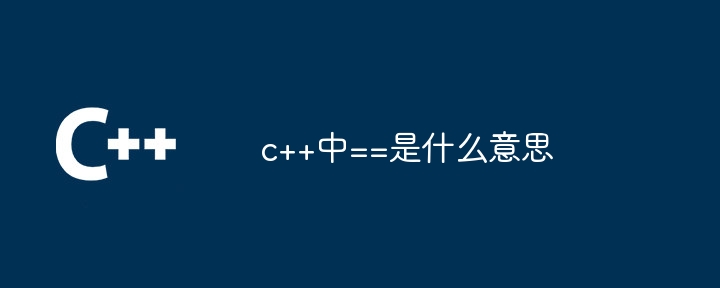Home >Backend Development >C++ >What does == mean in c++
What does == mean in c++
- 下次还敢Original
- 2024-05-01 10:18:15670browse
In C, the == operator is used to compare whether the values of two expressions are equal, and returns true if they are equal, otherwise it returns false. It supports comparison of different data types and performs automatic type conversion to facilitate comparison. But be careful not to confuse it with the assignment operator =, and when comparing pointers you should compare the value they point to rather than the pointer itself.

Meaning of == operator in C
In C programming language, == operator is a Equality comparison operator, which compares the values of two expressions for equality.
Detailed Description
== operator is used to compare the values of two variables, constants, or expressions. The operator returns true if the two values are equal; otherwise, it returns false.
For example:
<code class="cpp">bool result = (a == b);</code>
If variables a and b have the same value, result will be true, otherwise it will be false.
Data types and automatic type conversion
== operator can compare expressions of different data types. If the expressions are of different data types, C performs an implicit conversion to facilitate comparison. For example:
<code class="cpp">int x = 10; float y = 10.0; bool result = (x == y); // result 为 true,因为 int x 在比较前会自动转换为 float</code>
Usage Precautions
When using the == operator, you need to pay attention to the following points:
- Do not replace = = and = operators are confused. == is a comparison operator and is used to compare values while = is an assignment operator and is used to assign a value to a variable.
- == operators can compare basic data types (such as int, float, char) and user-defined types (such as classes and structures).
- If you want to compare two pointers, use the == operator to compare the values they point to, not the pointers themselves.
The above is the detailed content of What does == mean in c++. For more information, please follow other related articles on the PHP Chinese website!

